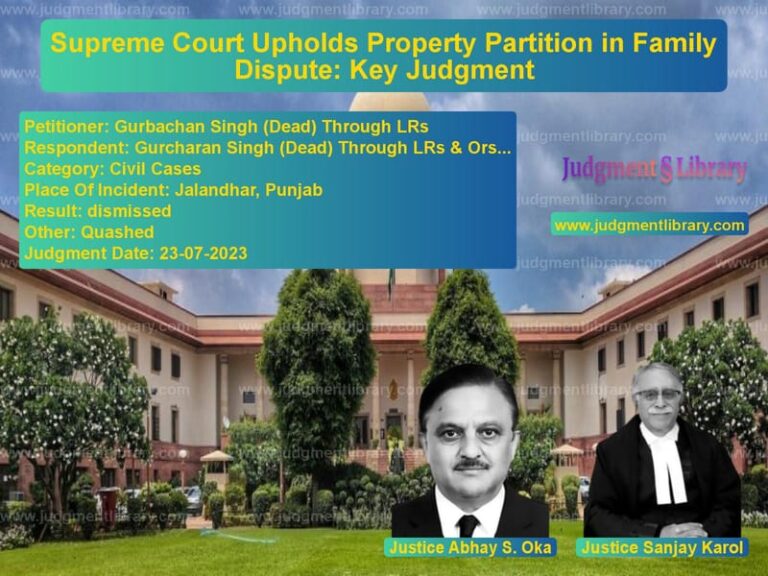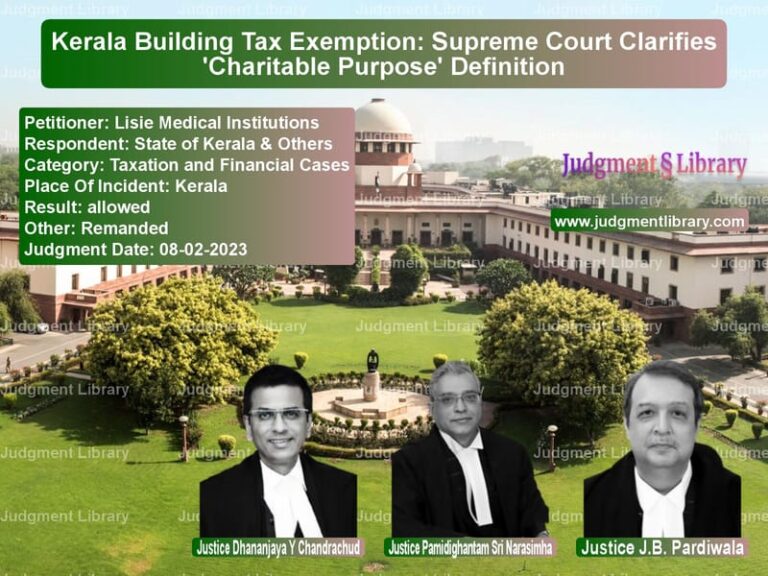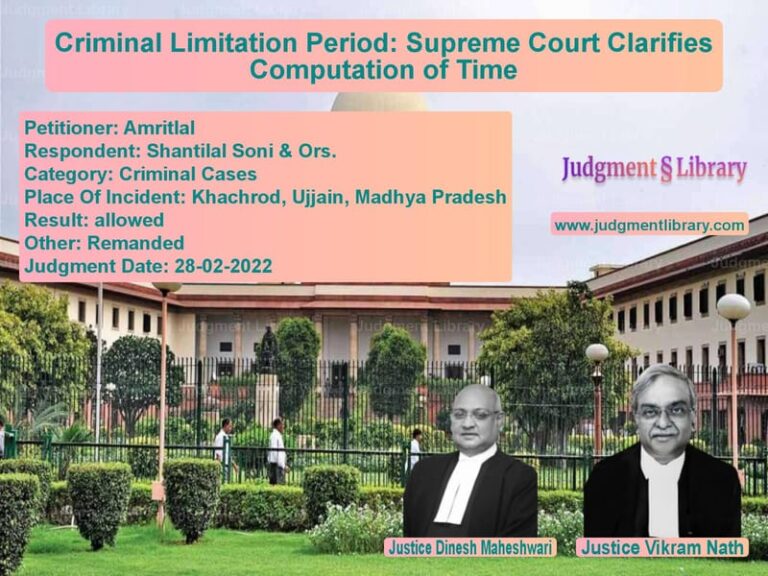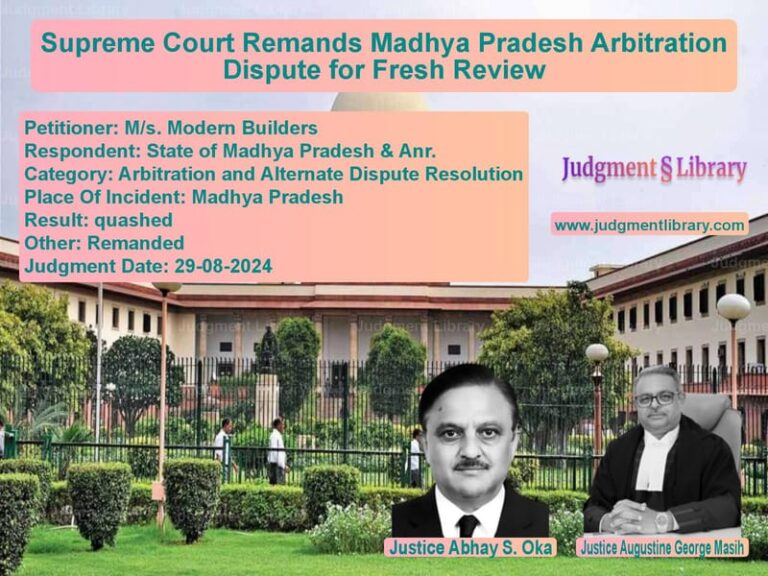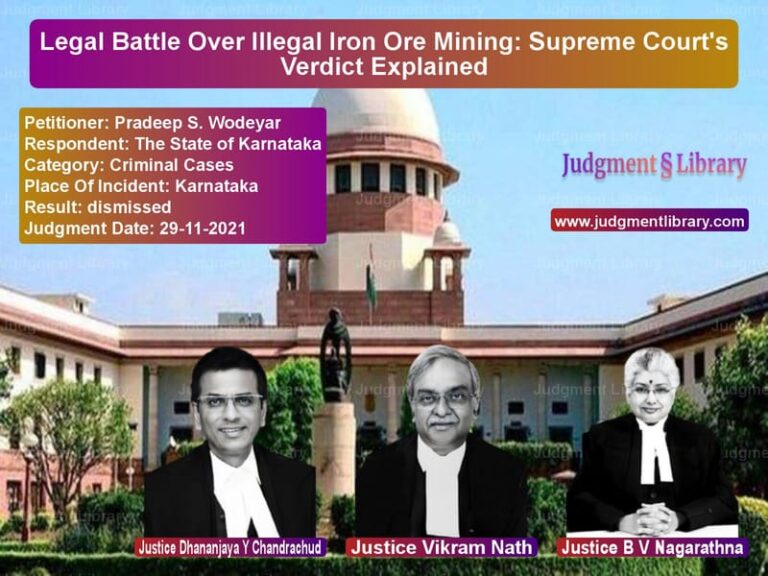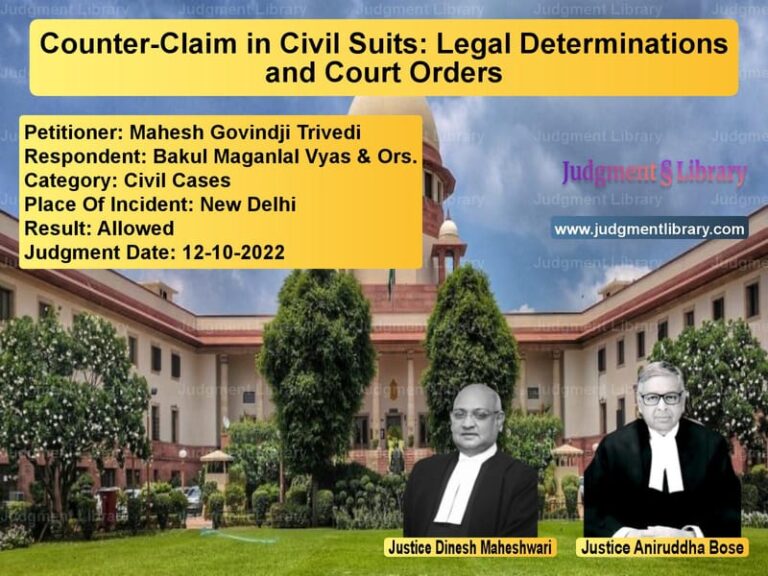Liability of Builders and Developers for Unpaid Dues and Project Delays: Key Ruling in Amrapali Group Case
The case of Bikram Chatterji & Ors. vs. Union of India & Ors. involves a series of applications filed by different entities concerning the Amrapali Group’s failure to deliver housing projects and its financial dealings with various stakeholders, including banks, homebuyers, and contractors. The primary focus of the Supreme Court’s ruling is on the liability of the developers and builders, specifically the Amrapali Group, for outstanding dues to homebuyers and the Noida and Greater Noida Authorities, as well as the restructuring of loans provided by banks to homebuyers. The case also addresses the release of unused Floor Area Ratio (FAR) to the Noida and Greater Noida Authorities.
The case originates from the various legal and financial issues faced by homebuyers in the Noida and Greater Noida regions. The Amrapali Group, which had undertaken large-scale residential projects, was found to have diverted funds that were supposed to be used for construction, leading to delays in project completion. Homebuyers had paid substantial amounts for their flats, but the developers failed to complete the projects on time. The Noida and Greater Noida Authorities were also unable to collect the dues owed to them for land allotments to the builders, as these amounts had been diverted or mismanaged.
Background of the Case
The Amrapali Group had been allotted plots of land by the Noida and Greater Noida Authorities to construct residential projects. The Group had promised to deliver flats to homebuyers who had paid substantial amounts, but due to mismanagement and diversion of funds, these projects were severely delayed. In some cases, homebuyers had paid more than 50% of the total cost of the flat but had not received possession or completion certificates for their flats. The delay was compounded by the builders’ failure to pay dues to the authorities, which included both land premiums and other penalties.
To resolve these issues, the Supreme Court appointed a court receiver and directed the National Buildings Construction Corporation (NBCC) to complete the pending projects. The Amrapali Group was found to have violated various financial obligations, leading to the cancellation of its leases and the forfeiture of the land rights. However, despite these serious actions, homebuyers continued to face the repercussions of the delayed projects, and the banks were hesitant to disburse loans for the remaining construction work due to the ongoing issues. The Court thus directed the restructuring of loans to facilitate the completion of the projects and the provision of possession to homebuyers.
Legal Provisions and Key Issues
The key legal provisions addressed in this case are:
- Section 11 of the RERA Act: This section requires builders and developers to adhere to timelines for completing projects and to deliver possession of flats to buyers within the promised period.
- Section 6 of the Consumer Protection Act: This section protects the rights of consumers and ensures that homebuyers are not left vulnerable to unfair practices by builders and developers.
- FEMA Regulations: These relate to the financial mismanagement and diversion of funds by the builders, which had an adverse impact on the completion of projects.
The key issue before the Court was how to resolve the financial and legal complications surrounding the delayed projects and the outstanding dues. The Court had to determine how to ensure the completion of the projects while ensuring that the homebuyers’ rights were protected and the builders were held accountable for their mismanagement.
Arguments of the Petitioners
The petitioners, including homebuyers and the Receiver, presented the following arguments:
- The homebuyers had invested their life savings in the flats, and the delay in delivery caused them severe financial and emotional distress. They demanded the immediate completion of projects and possession of their flats.
- The financial mismanagement by the Amrapali Group led to the diversion of funds meant for construction, and the homebuyers should not bear the consequences of this mismanagement.
- The authorities were not in a position to recover dues from the builders, and the homebuyers’ money had been misused. The Court was asked to ensure that the developers paid back the outstanding amounts.
Arguments of the Respondents
The respondents, including the Noida and Greater Noida Authorities, presented the following arguments:
- The authorities had faced losses due to the delay in project completion and the builders’ failure to pay dues. They argued that the dues from the builders should be recovered from the proceeds of the sale of unused FAR (Floor Area Ratio) to ensure that public money was not lost.
- While the authorities were willing to cooperate with the Court’s directions, they argued that the homebuyers should be made to pay the remaining dues on their flats, as the developers had defaulted on payments.
- The authorities contended that they should be allowed to sell the unused FAR to recover the outstanding land dues.
Judgment of the Supreme Court
The Supreme Court considered the arguments presented by both parties and came to the following conclusions:
- The Court directed the NBCC to complete the pending projects and provide possession to homebuyers. It also instructed the Noida and Greater Noida Authorities to issue completion certificates for the completed flats.
- The Court emphasized that the interests of homebuyers should be prioritized, and it directed that any funds recovered from the sale of FAR should be used for the completion of the projects.
- The Court also noted the financial mismanagement by the Amrapali Group and ordered that any assets of the group be liquidated to pay for the completion of the projects and the outstanding dues to homebuyers.
- The Court also ordered a restructuring of the loans for homebuyers and instructed the banks to release the remaining loan amounts for the completion of the projects, despite the NPAs in some cases. The aim was to avoid unjust enrichment and ensure that the projects were completed in a timely manner.
Impact of the Judgment
This judgment has significant implications for the real estate sector, particularly in terms of accountability for developers and the protection of homebuyers’ interests:
- The ruling reinforces the importance of adhering to timelines for project completion and delivery of possession to homebuyers.
- The judgment also addresses the issue of mismanagement of funds by developers and the need for judicial oversight in ensuring that funds are used for their intended purpose.
- It sets a precedent for restructuring loans for homebuyers in cases of stalled projects, ensuring that they do not face financial hardship due to the mismanagement of developers.
Conclusion
The judgment in Bikram Chatterji & Ors. vs. Union of India & Ors. is a crucial ruling that addresses the financial and legal issues arising from the delay in the delivery of homes to buyers and the mismanagement of funds by developers. The Court has ensured that the interests of homebuyers are protected, and it has provided a clear direction for the completion of stalled projects. This case serves as an important step in addressing the challenges faced by homebuyers in the real estate sector and sets a precedent for future cases involving similar issues.
Petitioner Name: Bikram Chatterji & Ors..Respondent Name: Union of India & Ors..Judgment By: Justice Arun Mishra, Justice Uday Umesh Lalit.Place Of Incident: India.Judgment Date: 10-06-2020.
Don’t miss out on the full details! Download the complete judgment in PDF format below and gain valuable insights instantly!
Download Judgment: Bikram Chatterji & O vs Union of India & Ors Supreme Court of India Judgment Dated 10-06-2020.pdf
Direct Downlaod Judgment: Direct downlaod this Judgment
See all petitions in Property Disputes
See all petitions in Consumer Rights
See all petitions in Contract Disputes
See all petitions in Damages and Compensation
See all petitions in Judgment by Arun Mishra
See all petitions in Judgment by Uday Umesh Lalit
See all petitions in dismissed
See all petitions in supreme court of India judgments June 2020
See all petitions in 2020 judgments
See all posts in Civil Cases Category
See all allowed petitions in Civil Cases Category
See all Dismissed petitions in Civil Cases Category
See all partially allowed petitions in Civil Cases Category


